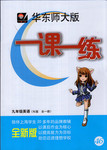题目内容
Have you heard about “Survival (生存) Holidays”? “Survival Holidays” is for children to go into the lonely place for exciting activities. Now about 1,100 companies are allowed to take children into the great outdoors without their parents.
The reason why people like “Survival Holidays” is that they think being close to nature is good for children. Many children in big cities spend all time watching TV and playing computer games. “Survival Holidays” gives them an important change.
Is “Survival Holidays” a wonderful idea? Maybe it is. Children need more free time to play. They need to be left on their own, without adults disturbing (打扰) them. Parents care too much about their children. They like to see the children being busy with activities that are controlled by adults, but children don’t know what to do when they are in danger. Even something like crossing a small river seems to be a hard challenge. Children are not comfortable with danger. Even small danger like getting their feet wet or falling down seems very terrible to them.
Many people think the survival activities are good for children. Even years later, they will still remember what they have learned. Some have learned to stay calm in different times. Some have learned how to keep safe. Others have learned how to work in a team. All these skills will help them a lot in their lives.
Answer the following questions according to the passage.
小题1:Is “Survival Holidays” for children or parents?
小题2:Why do people like “Survival Holidays”?
小题3:What do the children in big cities usually do?
小题4:How do children feel when they are in danger?
小题5:What can children learn in the survival activities?
The reason why people like “Survival Holidays” is that they think being close to nature is good for children. Many children in big cities spend all time watching TV and playing computer games. “Survival Holidays” gives them an important change.
Is “Survival Holidays” a wonderful idea? Maybe it is. Children need more free time to play. They need to be left on their own, without adults disturbing (打扰) them. Parents care too much about their children. They like to see the children being busy with activities that are controlled by adults, but children don’t know what to do when they are in danger. Even something like crossing a small river seems to be a hard challenge. Children are not comfortable with danger. Even small danger like getting their feet wet or falling down seems very terrible to them.
Many people think the survival activities are good for children. Even years later, they will still remember what they have learned. Some have learned to stay calm in different times. Some have learned how to keep safe. Others have learned how to work in a team. All these skills will help them a lot in their lives.
Answer the following questions according to the passage.
小题1:Is “Survival Holidays” for children or parents?
小题2:Why do people like “Survival Holidays”?
小题3:What do the children in big cities usually do?
小题4:How do children feel when they are in danger?
小题5:What can children learn in the survival activities?
小题1:Children./ For children. / It’s for children.
小题1:Because they think being close to nature is good for children.
/Because they think the survival activities are good for children.
小题1:They usually watch TV and play computer games./To watch TV and play computer games./Watching TV and playing computer games./What they do is to watch TV and play computer games./What they do is watching TV and playing computer games.
小题1: They don’t know what to do./They feel uncomfortable (terrible)./Not comfortable.
/Uncomfortable./Terrible./ They don’t feel comfortable.
小题1: They can learn some survival skills. / They can learn to stay calm in different times, keep safe and work in team. (只给出其中一点赋1分,若时态写成完成时赋1分。)
小题1:根据第一段Survival Holidays” is for children to go into the lonely place for exciting activities.可知生存假期是针对儿童的活动.故答:Children./ For children. / It’s for children.
小题1:根据第二段The reason why people like “Survival Holidays” is that they think being close to nature is good for children.可知答:Because they think being close to nature is good for children.
/Because they think the survival activities are good for children.
小题1:根据第二段Many children in big cities spend all time watching TV and playing computer games.可知答:They usually watch TV and play computer games./To watch TV and play computer games./Watching TV and playing computer games./What they do is to watch TV and play computer games./What they do is watching TV and playing computer games.
小题1:根据第三段, but children don’t know what to do when they are in danger,及Children are not comfortable with danger..描述,可知答: They don’t know what to do./They feel uncomfortable (terrible)./Not comfortable.
/Uncomfortable./Terrible./ They don’t feel comfortable.
小题1:根据短文最后一段描述,可知孩子们能学会在不同时刻保持冷静,如何保持安全,如何团队合作及各种技能.故答:They can learn some survival skills. / They can learn to stay calm in different times, keep safe and work in team. (只给出其中一点赋1分,若时态写成完成时赋1分。)

练习册系列答案
 华东师大版一课一练系列答案
华东师大版一课一练系列答案 孟建平名校考卷系列答案
孟建平名校考卷系列答案
相关题目


